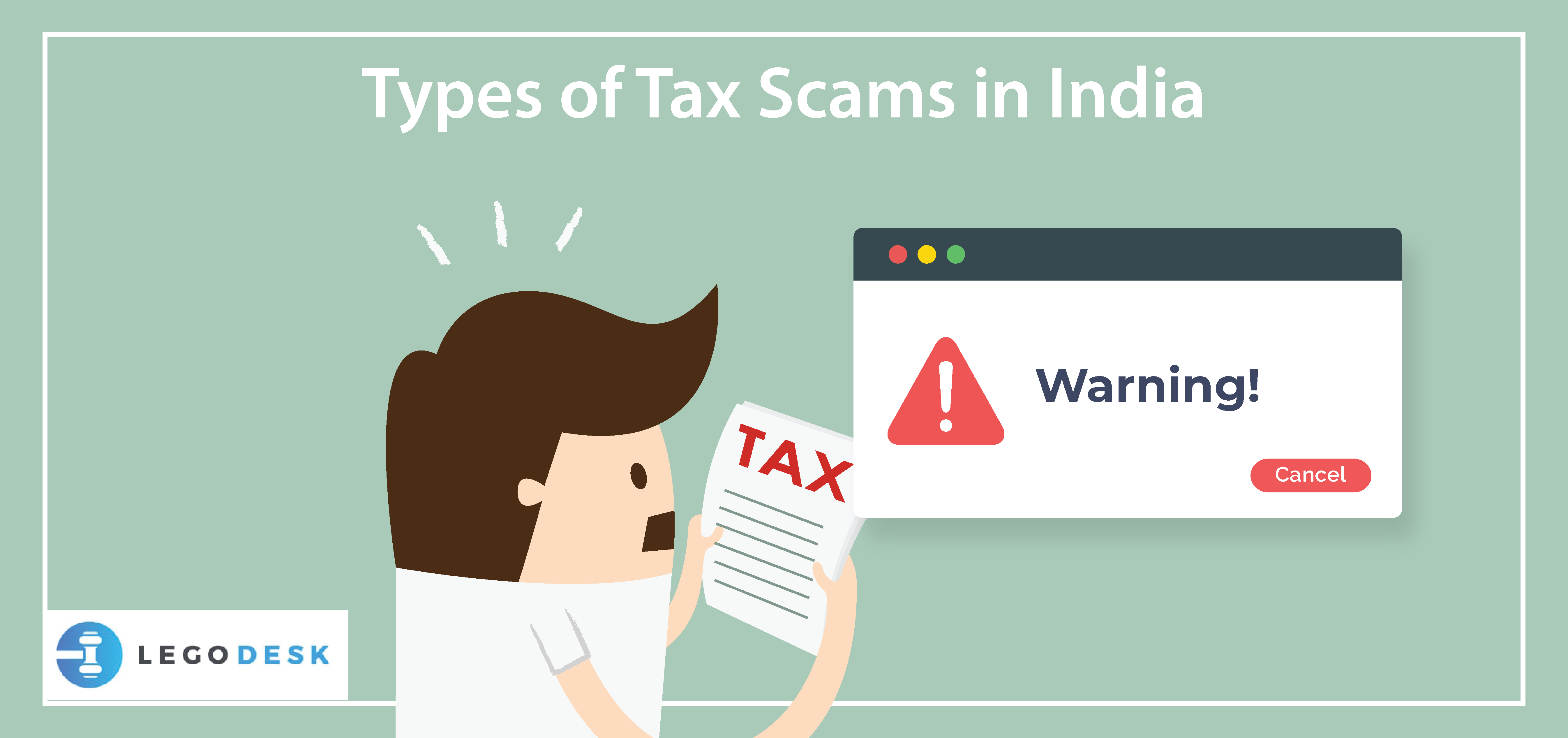
One would think that an honest taxpayer would be free of hassles related to such payment of tax. But this is not always the case. Anything that involves money, and even tax, is susceptible to fraud and Scam. Cyber-crime is not uncommon in the tax end of matters. And those who regularly use the internet would be familiar with the relevance of the subject, concerning fraud.
The Indian Revenue Service (IRS, for short) and the relevant tax commission has the duty and function of collecting tax in India. Thus, an individual attempting to evade tax would expect a phone call, letter or an e-mail, from such relevant department, informing that such payment of tax is made. Tax scammers could use anything from the ordinary phone call or online email services to threats attached with a banking trojan or ransomware. An honest taxpayer would be looted out of their sensitive information or money, directly or indirectly, due to this. The Income Tax Department, as well as the IRS, release statements on their website warning taxpayers to be wary of scam artists and their mode of operations.
Modes of Tax Scams to watch out for
-
Phone Scam
A simple phone scam would not seem like anything other than ordinary. This unsolicited call would be used to inform the receiver about the tax they are required to pay. It may even redirect them to contact a specific number to provide details of the same. The call might also involve a threat of legal action to be taken, by the IRS or Income Tax Department, on failure to make the tax payment. Such a call is likely to be prerecorded, and the IRS does not make such or the same. Though it is not difficult, nowadays, for such a phisher/spoofer to show that the number they use is from the IRS or the Income Tax Department, it would be suggested to use apps to identify the number.
-
Email phishing
An email scam would not only be dangerous to somebody who accesses and follows the instruction in the email but even to one who so much as opens the email. On opening a “phishing” email, it would be probable that you would come across a legal notice threatening non-payment of a tax with fine or instructions as to where to provide sensitive information for tax-related purposes. It is well known that anyone has to be extremely careful where they enter personal/sensitive information on the internet. Hence, it would be even more dangerous if entered into a phish scam email. It would forward such information to be used to impersonate the person, steal their identity, or sell such information. The most prevalent groups of tax scammers would use this medium to threaten or entice a taxpayer with sizeable refunds. It is not only important one makes sure to stay away from such emails but should also report the same to prevent such scams from phishing anybody in the future.
-
Identification Fraud-
Impersonation or identity theft are familiar words in criminal law and information technology law. The same is relevant concerning tax scams. Scammers could use various means to fraudulently or illegally obtain the personal or sensitive information of a taxpayer. Such information would include their tax identification number or PAN details. It would be possible for scammers to get tax refunds or returns which the owner of the information was legally entitled to on using this information. Having antivirus protection software and the firewall will prevent a leak of such information to a great extent if such a threat is over the internet.
The Income Tax Department has included content on its website regarding reporting of phishing activities, fraudulent email regarding tax returns and fake tax websites. They describe the mode of such fraudulent activities, how to identify and report the same.
Type/Forms of Tax Scams
-
Fraudulent Refund Schemes-
The tax scammer, while phishing or in contact with the taxpayer, would invite the latter to be attractive but fraudulent methods. This offer would be to obtain more tax returns or refunds. The scammer would claim that this is possible by filling a form of a certain number or paying an amount towards a subscription towards their services.
-
Charities/Donations-
Fraudsters or scammers would use charities or offers to donations to taxpayers to lure them into donating to the same with tax incentives.
-
Fake tax notices-
Through the phone or email, a scammer could inform the taxpayer that a certain tax has to be paid by them. This tax that they are claiming might not exist. It has to be checked whether any such tax is required to be paid and also check the source from where this claim arises.
The only way to stay clear and safe from tax scams and fraud would be to have knowledge of how such activities happen and to have decent antivirus software and firewall protection. All such online scams have to be reported to webmanager@incometax.gov.in or incident@cert-in.org.in

